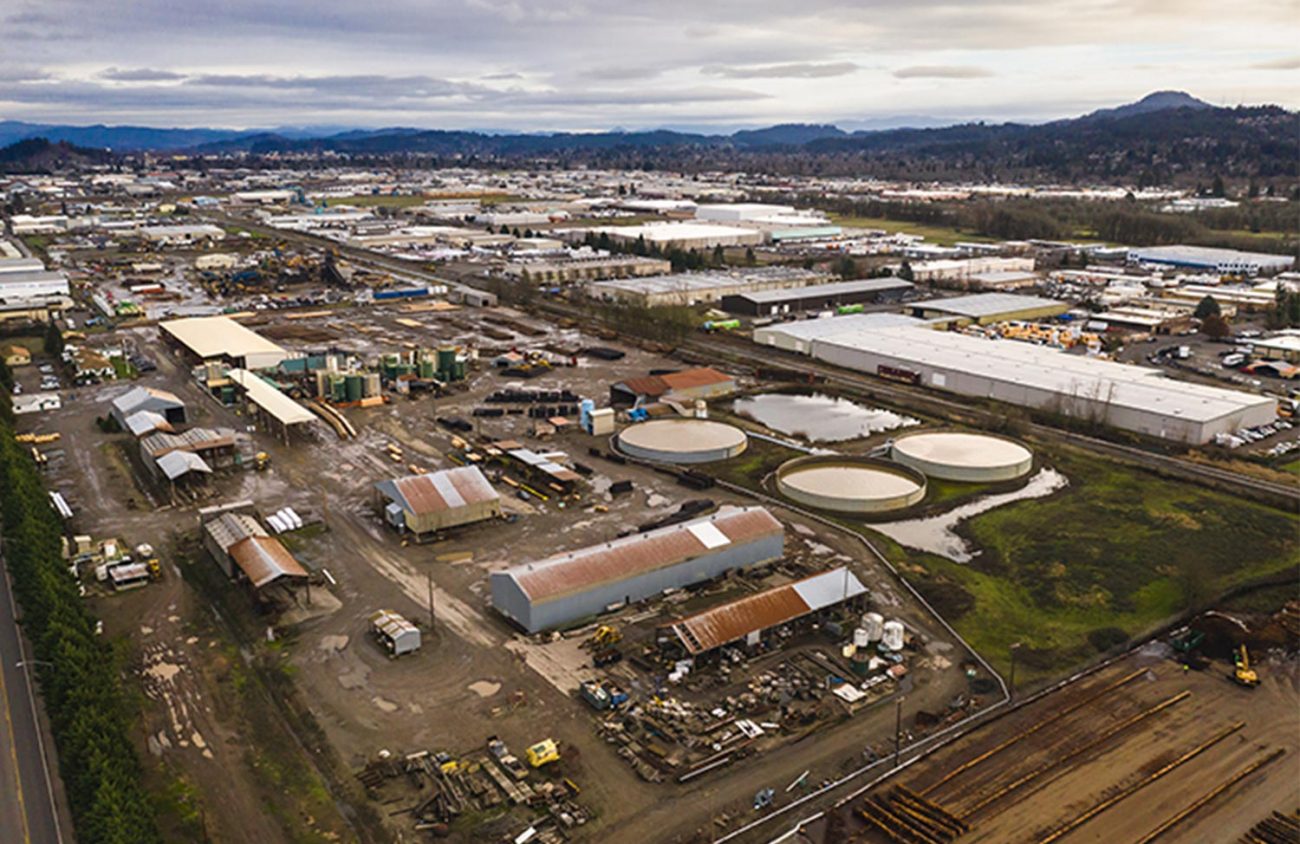The federal government has filed criminal charges against J.H. Baxter Co. and its owner, Georgia Baxter-Krause, alleging that throughout 2019 the company illegally boiled off and vented into the air around its Eugene factory large amounts of toxic liquid waste, and then lied about it to investigators.
Baxter illegally bypassed pollution control equipment at its Roosevelt Boulevard wood-creosoting factory and boiled and vented directly into the neighborhood’s air about 1.7 million gallons of hazardous liquid waste in 2019, federal and state investigators say. That’s enough to fill about 114 standard 25-yard swimming pools.
The company conducted the illegal venting because the equipment it was supposed to use to legally process the waste had broken, investigators say.
The boiling and venting violated federal law, according to the felony charges filed Nov. 22 in U.S. District Court in Eugene as part of a years-long federal and state investigation into the now-shuttered, heavily polluted and much-vilified factory, and its owner.
Baxter and Baxter-Krause have hired a Portland law firm, but they have not yet answered the federal charges. It’s unclear where Baxter-Krause lives. Her company appears to be defunct. She closed and abandoned the Eugene factory in 2022.
The lawsuit says Baxter-Krause lied to state investigators about the venting. In 2020, she told investigators the company had “occasionally” done boiling and venting of toxic liquids and did not have records of specific dates, the lawsuit says.
But in truth, she knew the company “maintained detailed process logs” showing toxic liquids were illegally boiled off on about 136 days between Jan. 2 and Oct. 6, 2019, the lawsuit says.
Investigators say the fumes may have contaminated nearby homes. Government agencies are in the midst of removing polluted soil at homes near the factory.
The federal lawsuit opens a new chapter in the Baxter pollution saga. Its impact is unclear. Federal penalties may include fines and prison time. The Oregon Department of Environmental Quality has already levied $350,000 in civil fines against Baxter for a sweeping range of violations at the plant, including the illegal toxic venting. The company has failed to pay. Civil lawsuits filed in federal court by residents near the Baxter plant claiming they were harmed by the chemical-laden air have dragged on for years.
Baxter at one time had wood creosoting factories in California and Washington as well as the Eugene site. The company now appears to have no on-going operations. At the Eugene factory, it left tanks full of hazardous liquid creosoting wastes, as well as polluted land and groundwater. Federal and state agencies are now responsible for the mess.
The criminal allegations about the venting are eye-watering.
The factory’s standard work entailed employees putting wood poles into large sealed metal vats called “retorts” where the wood was soaked in heated liquid creosote and other toxic chemicals. The process left a hazardous liquid waste. In much of 2019, when the retorts were not used for soaking wood, workers poured the unusable waste liquid into them, turned up the heating devices to boiling point, bypassed pollution controls and vented the fumes into the open air, federal and state investigators say.
Baxter-Krause told state investigators only a single retort was used to do some “occasional” boiling and venting, the federal lawsuit said. But in fact, the facility used four different retorts for the illegal work, the lawsuit said.
The DEQ didn’t find out about the illegal venting until about 2020, and also discovered that Baxter had done some illegal boiling-off as long ago as 2015, the agency says in a report. By boiling off the waste, the company avoided having to spend $452,000 to buy new equipment to process the toxic liquid waste, the DEQ estimates.
The charges were filed by U.S. Attorney for Oregon Natalie Wight and her office’s environmental crimes unit.
This story has been updated.
